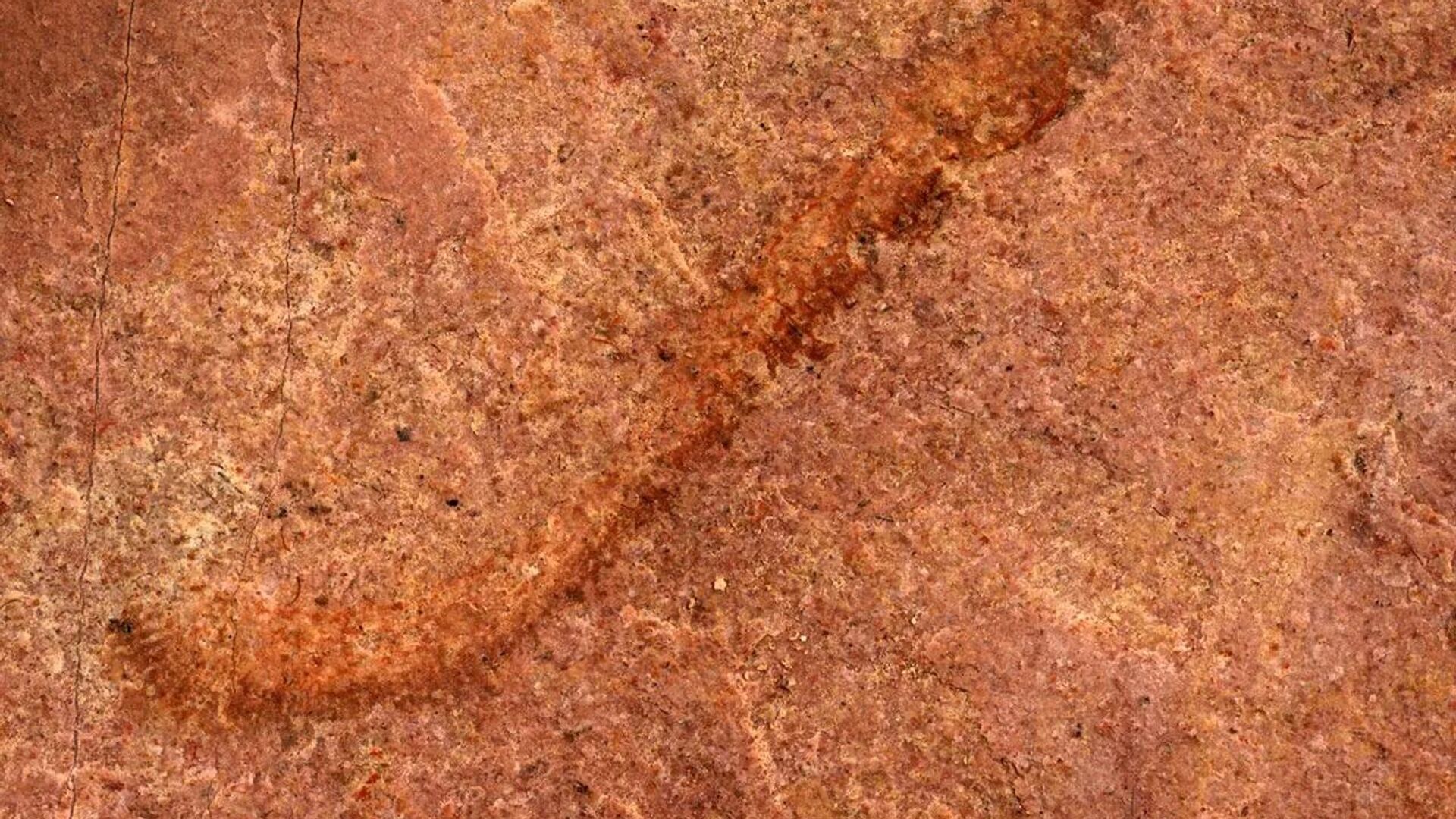https://sputnikglobe.com/20221201/fossilized-brain-of-prehistoric-worm-like-creature-grants-insights-into-arthropod-evolution-1104946952.html
Fossilized Brain of Prehistoric Worm-Like Creature Grants Insights Into Arthropod Evolution
Fossilized Brain of Prehistoric Worm-Like Creature Grants Insights Into Arthropod Evolution
Sputnik International
While it was originally presumed that brains do not fossilize, the new research offers evidence to the contrary. 01.12.2022, Sputnik International
2022-12-01T19:04+0000
2022-12-01T19:04+0000
2022-12-01T19:06+0000
science & tech
fossil
brain
study
https://cdn1.img.sputnikglobe.com/img/07e5/09/0e/1089055087_0:388:1280:1108_1920x0_80_0_0_ad0d0d5422fb1ce0ed8c1ff3178b6dfd.jpg
A fossil of a creature that existed millions of years ago may have shed new light on the evolution of arthropods' brains, a study published in the journal Science has suggested.The fossil was discovered in the Yunnan province of China and belonged to one of the extinct worm-like creatures known as lobopodians that existed during the Cambrian period around 500 million years in the past.Having studied the remains of the Cardiodictyon catenulum creature, a team of scientists has announced the discovery of a nervous system and brain “comprising three cephalic domains, distinct from the metameric ventral nervous system serving its appendicular trunk.”Frank Hirth from King’s College London, another author of the research, pointed out that it was previously believed that brains do not fossilize."So you would not expect to find a fossil with a preserved brain in the first place,” he added. “Second, this animal is so small you would not even dare to look at it in hopes of finding a brain.”The researchers argued that their findings help resolve a debate about the origin and composition of arthropods’ heads, with Hirth noting how biologists originally “arrived at supposing the head is an anterior extension of a segmented trunk."
Sputnik International
feedback@sputniknews.com
+74956456601
MIA „Rossiya Segodnya“
2022
Sputnik International
feedback@sputniknews.com
+74956456601
MIA „Rossiya Segodnya“
News
en_EN
Sputnik International
feedback@sputniknews.com
+74956456601
MIA „Rossiya Segodnya“
Sputnik International
feedback@sputniknews.com
+74956456601
MIA „Rossiya Segodnya“
science & tech, fossil, brain, study
science & tech, fossil, brain, study
Fossilized Brain of Prehistoric Worm-Like Creature Grants Insights Into Arthropod Evolution
19:04 GMT 01.12.2022 (Updated: 19:06 GMT 01.12.2022) While it was originally presumed that brains do not fossilize, the new research offers evidence to the contrary.
A fossil of a creature that existed millions of years ago may have shed new light on the evolution of arthropods' brains, a study published in the journal Science has suggested.
The fossil was discovered in the Yunnan province of China and belonged to one of the extinct worm-like creatures known as lobopodians that existed during the Cambrian period around 500 million years in the past.
Having studied the remains of the Cardiodictyon catenulum creature, a team of scientists has announced the discovery of a nervous system and brain “comprising three cephalic domains, distinct from the metameric ventral nervous system serving its appendicular trunk.”
"To our knowledge, this is the oldest fossilized brain we know of, so far," said Nicholas Strausfeld, a professor from the Department of Neuroscience of the University of Arizona and co-author of the study.
Frank Hirth from King’s College London, another author of the research, pointed out that it was previously believed that brains do not fossilize.
"So you would not expect to find a fossil with a preserved brain in the first place,” he added. “Second, this animal is so small you would not even dare to look at it in hopes of finding a brain.”
The researchers argued that their findings help resolve a debate about the origin and composition of arthropods’ heads, with Hirth noting how biologists originally “arrived at supposing the head is an anterior extension of a segmented trunk."
"But Cardiodictyon shows that the early head wasn't segmented, nor was its brain, which suggests the brain and the trunk nervous system likely evolved separately," Strausfeld said as quoted in a press release by the University of Arizona.

